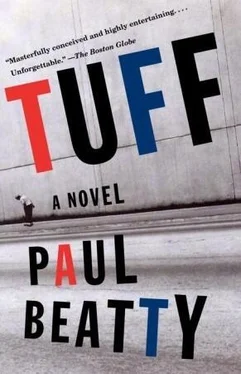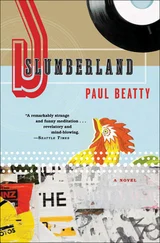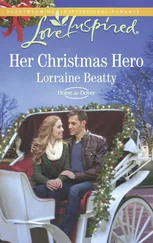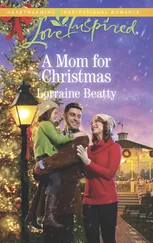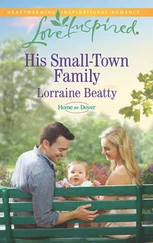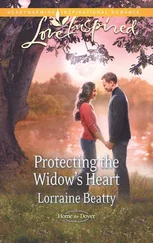Winston walked over to the table and poured himself a glass of water from Cienfuegos’s pitcher.
“I wasn’t listening too hard, but I heard him say something about we need to imagine ourselves beyond race. Look at me,” Winston said, raising his arms to crucifixion height. “What you see is what you get, a big black motherfucker from a low-budget environment. If I’d been to outer space, written books, had dollars, drove a Mercedes-Benz, I’d imagine myself beyond race too. I’d imagine myself way beyond race. I’d imagine myself right out of this fucked-up neighborhood. Leave y’all motherfuckers behind to fend for yourselves. This nigger up here talkin’ about he afraid to park his Benz on the block. Wants to make the block a place safe enough to park his car. Like he the only nigger in the world got a fancy car. Much uptown niggers got Mercedes-Benzes. Tommy Touch got a brand-new fuckin’ Mercedes that does everything but tuck you in bed at night, and that nigger park his damn car anywhere he pleases. Why? Because unlike German Jordan, niggers know who Tommy Touch is. Tommy known on the block and in the community. Whether you know Tommy personally or just know of him, you know not to fuck with his car. ‘Imagine yourself beyond race.’ Shit, imagine owning a brand-new Mercedes-Benz. If you goin’ to fantasize, go all the way.
“Imagine Jordan, Ms. Tellos, Mr. Cienfuegos, or Ms. Cox goin’ to the hospital with you to watch your uncle die of AIDS, posting your bail, writing you letters while you upstate, sending commissary money, defending you on the street. Shit I’ve done for and with many of the sons, daughters, and grandchildren of many folks that’s up in here tonight. I don’t need to mention no names. You don’t think it’s true? Ask the person next to you. If you about supporting the youth, vote for me this Tuesday. Remember— ‘mi barrio, su barrio, nuestro barrio.’ ”
The speech drained Winston. Too dazed to hear anything other than Fariq, Armello, and Charley stomping their feet and yelling “Damn!” he slumped back to his seat, his face beaded with sweat. He looked up to see if his father had a smile or tears on his face. He’d never know, because Clifford was gone, replaced by a newspaper photographer.
Tuffy struggled to occupy himself during the remaining speeches. He rolled and unrolled his tie. Doodled on his notepad. Interrupted Wilfredo Cienfuegos to ask for more water. Inverted the nameplate, scribbled ‘Tuffy 109’ on the blank side, and placed it back in front of him. Apologized when the snickers discombobulated Collette Cox during her speech. Winston welcomed the moderator’s first question. Forty-five more minutes and I can go .
“The first question is from Juanita Navarro of East 111th Street. What strategies do the candidates have for reducing juvenile crime?” Each of Winston’s fellow aspirants answered the query with the requisite campaign forthrightness, their responses identical save for German Jordan’s couched verbiage: “It is imperative we provide our children not only with the physical infrastructure for advancement, but also a bold social and mental infrastructure. Just as the streets need sewers, the children need community centers, midnight basketball, tutorial services.…”
Winston’s answer set the jocular tone that would be his for the remainder of the debate. “What would I do about juvenile crime? I’d lower the age when niggers are no longer minors to five years old. Juvenile crime would be eliminated just like that,” he said, snapping his fingers for emphasis.
Slamming his hand on the table, German Jordan stood up and demanded Winston respond to the question with the sincerity it deserved.
Tuffy snorted. “That’s how they lowered welfare. Kicked me and everybody else off and said, ‘We lowered the number of niggers on welfare.’ When they did that I bet you didn’t jump in the mayor’s face talkin’ ’bout ‘Would you be serious?’ So sit your punk ass down, you little astronaut bitch!”
When the debate ended, it was apparent from the number of strangers wishing him good luck come Tuesday, that Winston had won over a few of the electorate’s more cynical voters. His friends invited him to a celebratory dinner, but he begged off, saying he needed to be alone for a while. He kissed Yolanda goodbye and told her he’d be home in about an hour. On his way out, he stopped to hug Inez, who was in German Jordan’s face, lambasting him about his duplicitous policies. Stopping in mid-tirade, she squeezed Winston. “You did good. That speech alone was worth fifteen thousand dollars. Thanks.” She held at him arm’s length. Winston had survived another summer. “What, Ms. Nomura, what?”
“Nothing, just looking.”
“Ms. Nomura, I ain’t changed.”
“Yes you have.”
“How?”
“I don’t know.”
“Same as I ever was,” Winston said, returning her hug.
Spencer came over, looking contrite. “Winston, I want to say—”
Tuffy raised his hand. “Look, man, I have an idea. I’ll call you about it in a week or two.”
“About the articles …”
“Look, write whatever you want, I really don’t care.”
As he walked outside, his muttering loitered behind him like the putting of a small outboard engine: “No shame in my game.”
He passed Spencer’s car, knelt down, and retrieved his gun from the hollow of the rear bumper. Suspecting a police presence, he’d stashed the pistol before the debate when no one was looking. He slid the automatic, now as much of an accessory to Winston as his belt, into his pocket and walked west. He was going to lie down on the grass of Central Park’s Great Lawn, soak in the last of the summer sun, and read his sumo book.
During the walk he didn’t ruminate on the previous two hours like an ordinary politician would have. Though he felt good about his performance, he didn’t care whether it appeased his supporters or moved the swing vote to his side. He had said what he had to say, nothing more. It simply felt good to be out of the auditorium, well away from the posturing civil servants and concerned public.
Winston’s legs and spirits were light, and they quickly carried him to Eighty-sixth Street and Park Avenue, the southern hinterlands of the Eighth District. Long gentrified by the private university that owned most of the land in this section of the city, the vista was of wine and specialty shops, and luxury condominiums named after Native American tribes: the Iroquois, the Dakota, the Oneida, the Pequot. Like a child hesitant to jump into an unheated pool, Winston toed the curb, afraid to step into the street. Fuck, I have to piss. I shouldn’t have drank all that water . He knew there was no sense in going to a nearby restaurant to use the bathroom. He’d only be rebuffed under the guise of not being a patron. Unable to hold his bladder any longer, he urinated on the walls of a dormitory, not even bothering to tuck into one of the facade’s crannies. He took a deep breath, and after a few seconds he began sidestepping his way along the base of the building. As he moved right, dripping wet letters spelled out, “Vote Winston Foshay — King!”
Their skins burned pimiento red, white people soaking up more than their share of the sun filled the Great Lawn from the far soft-ball fields to the turtle pond. The air smelled of Brie, grapes, and Australian white wines. Normally, Winston would’ve avoided a mob of white folks as if it were, well, a mob of white folks. But this time, the iron lance of King Wladyslaw II’s statue prodding him in the back, he plunged into the throng, settling between the tartan blankets of two Upper East Side preppy families. After checking their immediate surroundings, ensuring that nothing valuable was within Winston’s reach, the blond family smiled and politely offered him a plate of wafers and Roquefort and a clear plastic cup of wine. Winston’s refusal was his churlish “Hey, yo!” to the scruffy merchant selling cans of beer out of a Styrofoam cooler he carted along in a red toy wagon.
Читать дальше
